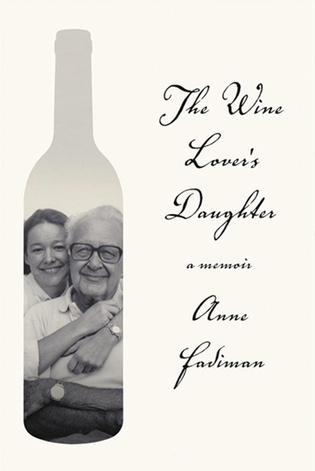 loading
loading
Arts & CultureReviews: March/April 2018A memoir by Anne Fadiman on her famous father, and Ron Chernow ’70 tackles Ulysses S. Grant.  View full imageThe Wine Lover’s Daughter Corby Kummer ’78 is a senior editor of the Atlantic and editor-in-chief of Ideas: The Magazine of the Aspen Institute. Anne Fadiman’s father was formidably erudite, the sort of person who whiled away bouts of insomnia by listing animals not only alphabetically but by names that began with a letter and then the next letter of the alphabet (as in, say, aardvark, abalone, . . . ). He was also a literary celebrity, at least when she was growing up in a Bel Air house with eight bathrooms and a concealed electronic bell for summoning the uniformed cook—all of which facts Anne would try to hide later on, when she was at Harvard. In her college years, her classmates were waiting to find out their draft numbers, and any sort of display of wealth was simply not done. By the time she was at Harvard, Fadiman had acquired an unerring sense of what was and wasn’t done, and was comfortable enough in the preppy circles her father had strenuously bred her to join. But even though his carefully plummy, vaguely patrician accent—”so impeccable,” she writes, that “no one actually spoke that way except others from Brooklyn who wished to sound as if they weren’t”—was familiar to the millions who listened to the popular radio quiz show Information Please; and even though millions more could recognize him from television appearances and lit’ry appearances as a decades-long Book of the Month Club judge and Encyclopaedia Britannica editor; and even though Park Avenue hostesses ranked him on a par with Noel Coward as a dinner guest, Fadiman père himself felt unshakably a fraud. He was always, he sensed, the parvenu, at risk of being ejected at any moment from the elite club he had worked so hard to join—and at risk, while being booted out the door, of being derided as just another striving Jew. Fadiman felt most at one with his carefully curated identity when he was among fine French wines. He collected them, lovingly and reverently, spending freely even though he was frugal with all else but books and his children’s education. He wrote copious introductions, encyclopedias, and anthologies; they were his chief forms of literary output. He could seldom get much of a start on full-fledged books, because, his daughter theorizes, he felt unworthy of them. His life was spent smarting from and trying to make up for not making it into the English professors’ club at Columbia; the department chair had explained to Fadiman that his close friend Lionel Trilling would be getting the one place allocated for a Jew. Though the career he made instead brought fame and certainly income far beyond his other exceedingly clever and well-read Jewish friends, his fate was to emblematize middlebrow culture. “Although middlebrows considered him a highbrow,” his daughter writes, “highbrows disowned him.” And always he burned with the shame of the Judaism that had barred his admission to the circles he most wished to enter.
All this Anne Fadiman relates with a wonderfully deft, modest touch, keeping the focus on her father and her clear-eyed love for him. Never does she mention her own books, including The Spirit Catches You and You Fall Down and Ex Libris: Confessions of a Common Reader, both of which have cult-like admirers; or the fact that she is an extremely popular teacher of nonfiction writing in what she decorously refers to as an “Ivy League English department.” Anne Fadiman’s writing quietly offers page-by-page lessons in the art of crafting prose. She takes a direct, personal tone in one significant chapter, on why she could never like wine. Her palate is too sensitive to taste, as an elaborate scientific test revealed. (I share the same “supertaster” designation, a disadvantage for someone who writes about food.) In a later chapter, “VIP,” she shows us how her father—who lived for reading and shunned all exercise—coped with the almost complete loss of his sight. (“VIP,” it turns out, also means “visually impaired person.”) Fadiman never settles for the general when she can provide specifics, and she delivers practical lessons for those losing their sight: to fill a coffee cup, curl your finger over the rim to detect the rising heat; to brush your teeth, squeeze the toothpaste onto your lower lip, from which it is unlikely to fall, and sweep it up with the toothbrush. The chapter recounts the unlikely pleasure her father learned to take in life without his central sense but with his mind intact, and shows us the joy he rediscovered in living. In notes for one of his many unfinished books, this one on living with blindness, Clifton Fadiman wrote, “Develop with examples.” His daughter has lovingly, beautifully developed her father’s life with examples.
|
|